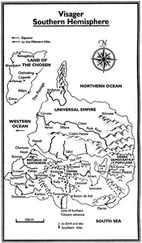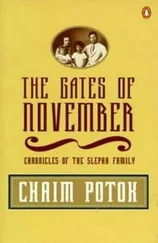Danny and I were together almost every day during the first month of that summer. It was a hot, humid month, with a fierce summer sun that left a heat shimmer over the streets and softened the asphalt. Manya was forever muttering about the streaks of black tar that clung to my shoes and sneakers and rubbed off on the floor of the apartment.
Danny spent his mornings studying Talmud, either alone or with his father, while I spent Monday, Wednesday, and Friday mornings playing ball with my yeshiva friends, none of whom seemed to be bothered by my friendship with Danny – they accepted it and just didn't talk about it – and Sunday, Tuesday, and Thursday mornings studying Talmud with my father, either on our back porch when it was a nice day or in his study when it was not. My father and I were studying Sanhedrin – slowly, patiently, intensively, not leaving a passage until my father was satisfied that, at least for the present, we understood it fully. Often, we were only able to do about ten lines at a time. Danny, on the other hand, had his daily Talmud goal increased to three blatt by his father. It didn't seem to affect him very much; he was still able to spend all his afternoons on the third floor of the library, reading. I joined him 'there every afternoon, and frequently my father came with me. He was writing another article, on a passage in Avodah Zarah, which, he said, he was only now beginning to understand, and he needed one of the journal collections. So the three of us sat there in the aftemoons, reading or talking quietly, until it was time for supper. Once I invited Dan to come home and eat with us, but he refused the invitation with a lame excuse, looking a little embarrassed. On our way home, my father told me that Danny probably didn't eat anywhere except in his own home, or in the home of one of his father's followers, because of kashruth, and that it would be wise for me not to embarrass him again with another invitation.
On Shabbat afternoons I would walk to Danny's house. Danny would take me up to his father's study, and we would all do battle again over the Talmud. Then would come the glass of tea, the Afternoon Service, the ritual of the contest – Danny didn't once miss finding his father's deliberate errors – the Evening Service, and the Havdalah. Reb Saunders didn't talk to me again about Danny's reading, but I knew he was bothered by it terribly. I could tell from the occasional silence that filled the study while. Danny would be downstairs getting the tea. And Danny didn't talk about it, either. He just went on reading.
Only the evenings were unscheduled. We sort of played them by ear, as Mr Galanter might have said, deciding during the afternoon whether we would spend the evening walking, or in my house or his, or alone. Often, I went to the movies either with my father or with some of my school friends. Danny never went to the movies. They were forbidden by his father, he said.
My father and I followed the war news very carefully, and there were now many more New York Times maps on the wall of my room. From the fourth to the tenth of July there was a violent battle in the La-Haye-du-Puits area. A panzer counterattack west of the Vire was smashed on the eleventh of July, but the American drive toward St-Lô was stopped by German parachute corps. Caen was finally captured, and then on the eighteenth of July St-Lô fell. A war correspondent triumphantly announced that the lodgements area from which the Allied Armies would soon launch their major offensive into the heart of occupied France was now adequate and secure.
My father and I listened to the news broadcasts, read the Times, and studied the maps. It seemed to us that, despite the many announcements of victories, the war was going very slowly. My father looked grim as he studied the war maps that showed the Allied advance between D-day and the third week of July. Then the weather in France changed, and the war seemed to have come to a complete halt, swallowed by endless rain.
In the beginning of the third week of July, my father's research for the article he was writing made it necessary for him to travel to the library of the Jewish Theological Seminary in Manhattan. There were manuscripts there which he needed for the purpose of checking variant readings of the Talmudic passage on which he was working. So every day that week right after lunch he took the subway to Manhattan, and I went alone to the library to be with Danny. That was the week Danny began to read Freud in German, It was difficult for him at first, and he admitted it openly. Not only was the language still a problem but also the terminology and ideas he encountered were strange and bewildering to him. This wasn't Graetz on Jewish history, he told me, or Minkin on Hasidism, or Hemingway, Fitzgerald, Dreiser, and Dickens. It wasn't even the Ogden and Rugel psychology books he had been reading. This was primary source material, research papers based on direct experimental data, involved theoretical constructions utilizing a complex vocabulary and containing a wealth of original ideas – and he was breaking his head on it.
I listened to him talk and felt a little awed by it all. Five or so weeks ago, he had talked of the unconscious and of dreams almost as a child talks about his first tricycle. Now he was talking about direct experimental data and involved theoretical constructions.
He spent the first part of that third week in July leafing through a collection of Freud's writings – to get a taste of the material, he said – while I sat opposite him, trying to make my way through the first volume of Principia Mathematica and finally giving it up as too difficult and settling for a rereading of the article my math teacher had recommended in the Journal of Symbolic Logic – it was called 'Conditions Affecting the Application of Symbolic Logic', and I understood it a lot better this time – and for a book on logic by Susanne K. Langer. The first sections of the book were a little too easy for me, but the final chapter on logistics, in which she showed how Principia Mathematica provides a basis from which the concepts, operations, and relations of arithmetic and other branches of mathematics may be derived, I found to be very exciting.
By Thursday, Danny's side of the table was piled high with books, and he was looking thoroughly unhappy. He was sitting there, twisting an earlock and biting his lower lip, his face a mask of frustration. It was impossible, he said finally. The whole thing was ridiculous and impossible; he wasn't getting anywhere. It wasn't so much the German itself anymore as the technical terminology. He wasn't making any headway at all. Not only that, but he had begun to use English translations of the German works he had been reading, and they did nothing but confuse him even more. He showed me where in one translation the German word 'Unlist' had been translated as 'pain', in quotation marks, and the word 'Schmerz' had been translated as 'pain', without quotation marks. How was he supposed to know what the translator had had in mind when he had used 'pain' with and 'pain' without quotation marks' And look at the word 'Besetzung', he said angrily. What did it mean to translate it as 'investment' or 'charge'? And what good did it do to translate it as 'cathexis?' What did 'cathexis' mean? 'Angst' was 'anxiety'
'Furcht' was 'fear', 'Schreck' was 'fright'. How was he supposed to know what the difference between 'fear' and 'fright' was? He wasn't getting anywhere, he would probably have to drop the whole thing; who did he think he was anyway trying to read Freud at the age of fifteen? He went home angry and disgusted, his face a picture of bewildered frustration.
When I got to Danny's house that Shabbat afternoon, I found him in an ugly mood. He was waiting for me outside. He greeted me with a curt nod of his head and muttered something about not really being in the mood for Talmud now but we had to go up anyway. He was very quiet during the first few minutes of the Talmud battle, and though I tried to make up for his silence by increasing the volume of my own enthusiasm, I could see that Reb Saunders was becoming more and more annoyed by his son's lack of participation. Danny was tense and edgy, his face still masked by frustration, his mind obviously not on what we were discussing. He's probably eating himself up alive over Freud, I thought, hoping his father wouldn't lose his temper. But Reb Saunders remained patient and left his son alone.
Читать дальше












